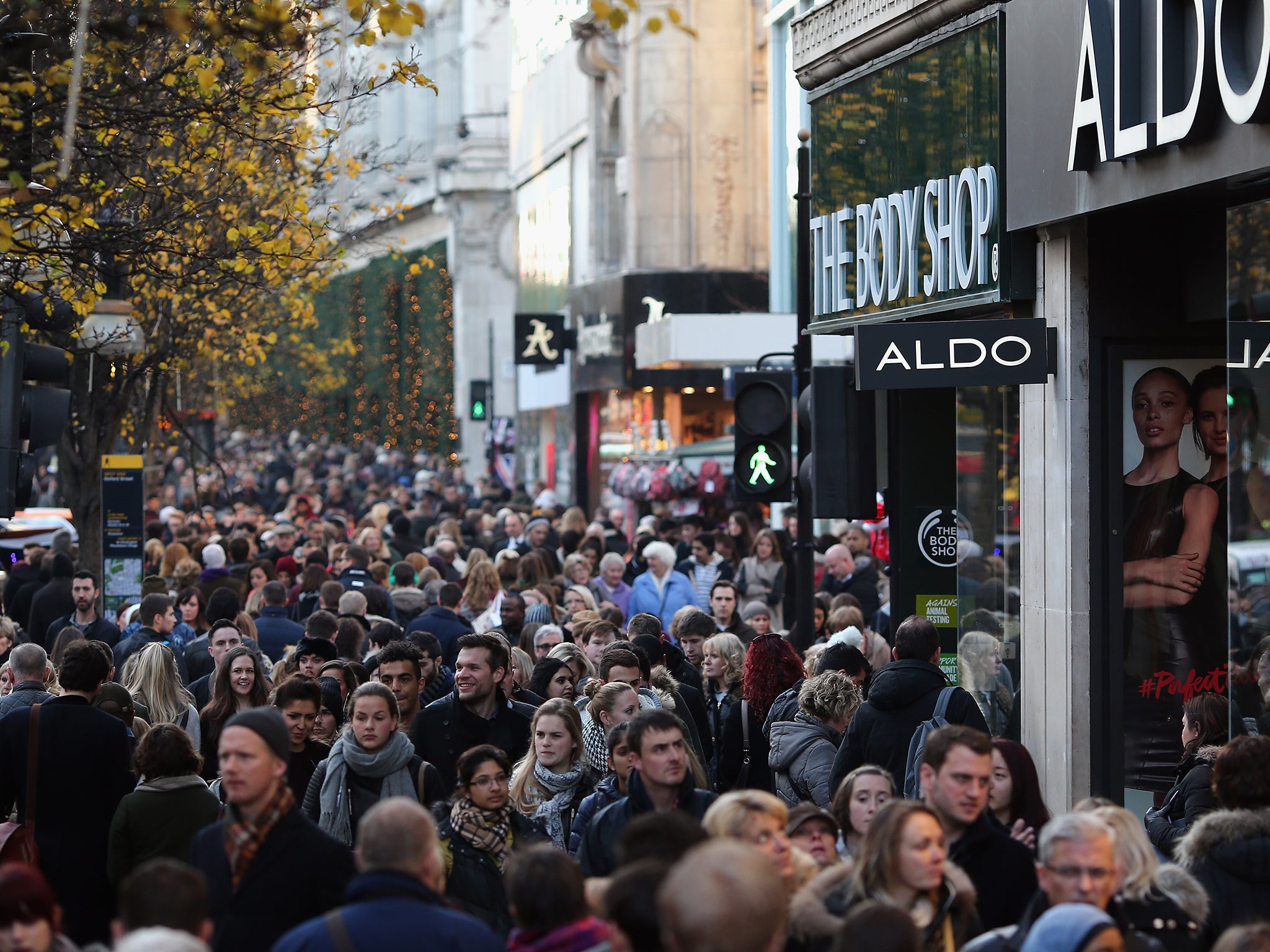All this Christmas shopping is driving up the trade deficit
Our goods tend to be made abroad, and our services at home. The trouble is, services are hard to export


Check the labels on the Christmas presents that you are buying and you will find that in all probability they are foreign-made goods. If, on the other hand, you follow the trend to give services instead of things, perhaps a restaurant meal, the chances are they will be generated here. And there in a nutshell you have the dilemma of the British economy. The recovery has been driven by domestic demand, but much of that demand has gone into importing foreign goods. So, we have a record trade deficit. Our service industries are doing well and are net exporters. But their surplus is not big enough to get near to covering the goods account deficit.
Many years ago the monthly trade figures were awaited with concern, for they were seen as a main indicator of health in the economy. It is often argued that Harold Wilson lost the 1970 general election because of a set of bad trade figures (subsequently revised) just before polling. Now, hardly anyone seems to care. On Friday we had news of a huge deficit for October, £4.14bn, an all-time record, yet the story was eclipsed by the further fall in the oil price and the prospect of a rise in United States interest rates later this week. It is true that the monthly figures are erratic and these figures follow a sudden narrowing of the deficit in September. But the longer-term trend is discouraging. We look to be heading for a current account deficit this year of around 5 per cent of GDP.
That is worryingly large. You would expect there to be some deficit, perhaps 1 per cent or 2 per cent of GDP for the simple reason that the balance of payments has to balance – the inward flow of investment funds on capital account has to be balanced by an outward flow of funds on current account. Since we have become attractive to foreign investors as a safe haven for funds, that inflow has to be offset by something, and that something is our penchant for buying foreign stuff.
There is nothing new in this appetite in Britain for foreign goods. It goes back more than a century. When in the middle of the 19th century Britain was the workshop of the world, it still imported more physical goods than it made. However, it was able to cover the deficit with service exports and an inflow of funds from foreign investments. We still have our strong service export business but the flow of funds on investment account has gone negative. We are also facing the headwind of a deficit on energy, as the North Sea oil and gas fields run down.
So, we have both short-term weakness from the unbalanced recovery, and a long-term weakness from the erosion of our traditional inward flow of investment income.
For a while the imbalance need not matter too much. We very much had to have growth, and when you are in a recession you can’t be too choosy about the sort of growth you get. The eurozone was heading into another leg of recession, and since we were faced with a weak EU market for our exports it was more or less inevitable that our recovery should be driven by domestic demand. But now we rather need a better balance, for there are dangers in relying on an inflow of funds to keep the country afloat. As a German industrialist said to me a few months ago: “Soon, you will have nothing left to sell.”
That was unkind. Actually the German situation, where the country is running a current account surplus equivalent to 8 per cent of GPD, is equally dangerous, for the rest of the eurozone is in effect borrowing money from Germany in order to buy its exports. Since much of that money will never be paid back, that too is an unsustainable state of affairs. But there is a kernel of truth in the jibe.
Much of what foreigners have bought in Britain has been in the form of long-term investments such as commercial and residential property. But a lot of the money that has recently come in is in short-term investments, and with eurozone interest rates low, and in some cases even negative, that is hardly surprising. That is one of the main reasons why the pound has been so strong against the euro. But if confidence in the UK were to weaken, the money would inevitably flow out, bringing with it an equally inevitable drop in sterling.
So, what is the obvious candidate for such a fall in confidence? Answer: fear of Brexit. Whatever view you take as to the costs and benefits of EU membership, in the short-term at least, it would be silly not to expect funds to move out. Money is cowardly, as we saw in the run-up to the Scottish referendum last year, when there was both a quiet shift of funds south of the border and an overall fall in sterling. In the run-up to the Brexit referendum there will be similar weakness; beyond it, well, we will have to wait and see.
Join our commenting forum
Join thought-provoking conversations, follow other Independent readers and see their replies
Comments
Bookmark popover
Removed from bookmarks